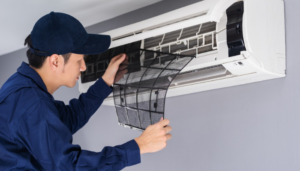Mastering Permits and Regulations for Your Dream Pool

Understand why you need authorization before building a pool. Building permits ensure local safety and building laws are met. County or city building departments or other local government agencies commonly give these licences. Sending entire pool plans with size, depth, location, and materials is required. This is essential for safe pool construction. It protects homeowners and neighbours.
Zoning Law Circumvention
Zoning rules limit what can be done in certain areas. The rules influence various pool building issues. Where should the pool go, what fence is needed, and how close to buildings, structures, and property lines? Different states have different zoning laws. Urban zoning may be stricter than rural. Avoiding legal concerns during and after construction requires meeting with local zoning regulators or a knowledgeable contractor.
Safety Rules and Conditions
Safety is highly important in pool construction. Safety rules differ by location to reduce crashes and injuries. Alarms, self-closing and self-latching gates, pool covers, and fences are basic safety precautions. These rules ban youngsters from entering public pools without permission. Owners must obey laws and protect guests and family. Knowing and following these pool safety rules can greatly avoid accidents.
Adjusting Local Changes
Pool-building laws vary by area. Pools in hurricane-prone coastal areas may need specific rules to resist high winds and water. Pool type and water supply may be limited in drought-prone areas. These area deviations must be understood for compliance. Talking to local professionals or hiring foreign pool builders will help you learn.
Apply For a Permit
Permission applications begin with detailed plans of custom pools houston. These designs must cover pool dimensions, building materials, plumbing, electrical, and safety. Completed drawings must be submitted to the local building department with application materials and payments. The building department checks ideas for local code compliance. The appraisal process may take days or weeks, depending on project complexity and construction department volume.
Inspections and Approvals
Construction frequently requires repeated inspections after permissions are obtained. These inspections guarantee the building meets safety and building rules and plans. Swimming pools, electrical and plumbing systems, forms, and excavation are frequently inspected after completion. These checks are needed to get a Certificate of Occupancy, which validates pool safety and compliance.
Common Issues and Solutions
Pool rules are difficult to bypass in many ways. Unexpected neighbourhood restrictions, permit delays, and safety concerns are common. Experienced local law experts can help you resolve these challenges. Hire a trustworthy specialist to speed up and prevent difficulties. Keep in touch with local officials and resolve concerns to keep the building project on track.
Conclusion
Construction of pools involves more than work. Planning and following rules are also required. Following local laws, approvals, and safety rules is essential. Professionals and localised pool building plans offer safety and efficiency for homeowners. After carefully following government standards, you can have a profitable and interesting pool that increases your home’s worth and gives you and your family endless delight.








